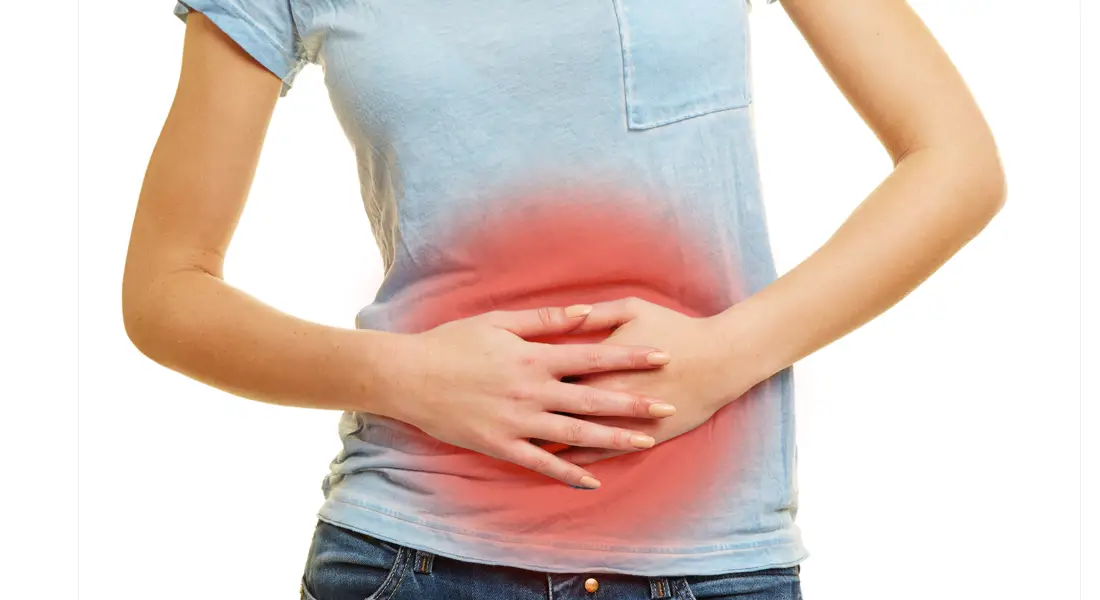What is IBS, And How Does IBS Affect The Quality of Life?
Irritable bowel syndrome (IBS) is a gastrointestinal (GI) disorder that can cause patients to experience chronic or recurrent abdominal pain. It can either be relieved or aggravated by a bowel movement (defecation). IBS patients are typically classified according to whether they predominantly experience constipation (IBS-C), diarrhea (IBS-D), or both stool patterns.
It is estimated that almost 20% of the global adult population is affected by some form of IBS, thereby making this disorder the most common complaint to gastroenterologists worldwide. Various underlying causes have been associated with IBS, which include:
- Genetic factors
- Diet
- Infections
- Disturbances in Intestinal Microbiome
- Activation of the Immune System
- Disordered Bile Salt Metabolism
- Changed Brain Function
- Changes in Serotonin Metabolism
- Anxiety
- Depression1
IBS and the Gut Microbiome
In a healthy individual, the intestine will contain a healthy microbiota comprised of more than a thousand microbial species. There is a mutualistic relationship between each person and the microbiome, which means that the microbes in our digestive tract get energy and nutrients from the food we eat. In return, the microbiome protects our bodies from harmful pathogens2. Changes in how these microbial organisms function and their diversity within our intestines have been associated with IBS.
How Are IBS and SIBO Connected?
Because SIBO and IBS are linked, much research has looked into this connection. SIBO is when there are more bacteria in the proximal part of the small intestine. It may or may not be accompanied by a change in the type of bacteria there. When there are 105 or more bacteria colonies in each milliliter of small intestinal fluid, SIBO is found in people with the condition (aspirate). Up to 78% of IBS patients also suffer from SIBO 3; therefore, the connection between these two conditions is highly relevant.
The three leading hypotheses connecting IBS and SIBO include:
- SIBO develops first, which is then followed by the development of IBS.
- IBS develops first and causes various motor and visceral disturbances within the small intestine. This dysfunction promotes the overgrowth of bacteria to follow.
- SIBO and IBS are two entirely different disorders that do not have similar physiological characteristics 3.
| Frequency of SIBO in IBS Patients | Reference |
| 34/76 (44.7%) | Park et al. (2010) |
| 28/43 (65%) | Scarpellini et al. (2009) |
| 55/127 (43%) | Carrara et al. (2008) |
| 89/258 (34.5%) | Mann et al. (2009) |
| 64/98 (65%) | Nucera et al. (2005) |
| 157/202 (78%) | Pimentel et al. (2000) |
| 14/59 (23.7%) | Sachdeva et al. (2011) |
| 35/98 (36%) | Reddymasu et al. (2010) |
| 49/200 (24.5%) | Lombardo et al. (2010) |
Table 1: Clinical studies that examine the prevalence of SIBO in IBS patients.
IBS is often a heterogeneous condition in the medical community, which means many factors can contribute to IBS. Some things that can change in the gut microbiome are changes in the intestines’ permeability (how easily nutrients can get in and out), how the immune system works, and how the intestines move.
The fact that IBS can cause people to have one type of stool pattern more often than another can be used to support the connection between IBS and SIBO.For example, SIBO patients will typically exhibit excessive gas present within their GI tract due to the increased presence of gas-producing bacteria. An increased amount of gas often causes patients to experience more frequent bloating, which is usually a complaint of IBS patients.
What It’s Like to Live with IBS
People with IBS have long-term pain and discomfort that make it hard to do everyday things like school or work. In addition to these symptoms, additional digestive complaints associated with IBS may include:
- Bloating
- Gas
- Constipation
- Diarrhea
- Alternating bouts of constipation and diarrhea
- Bowel movements are difficult to pass
- May feel incomplete
- Maybe uncontrollably urgent
- Clear or white mucus within the stool5
One of the most troubling aspects of having IBS is being told that your symptoms are “all in your head.” Your friends, family, and even health care providers may not believe that your symptoms are real. It can lead to vague diagnoses that may do more harm than good.
The Brain and IBS
While it is clear that IBS is not just “all in your head,” there has been a lot of research linking this GI disorder to changes in the brain. Recent research has shown that patients with IBS have thinner gray matter in their brain, a part of their brain full of neurons, which are the cells in their brain and spinal cord. Gray matter is an area of the brain full of neurons. People who have IBS may be more sensitive to their bowel movements. They have trouble controlling their emotions when chronic pain and have difficulty controlling their pain. Additional brain-related symptoms associated with IBS include lower back pain, anxiety, depression, and headaches.
Symptoms Journal
Living with IBS goes far beyond just taking your medications. Since there is ultimately no cure for this disorder, patients need to recognize what types of foods or situations may trigger their symptoms to occur. As a result, it is often recommended that IBS patients keep track of their symptoms throughout the day. In a symptoms journal, patients are urged to write down when they experience stomach pain, any discomfort, bloating, diarrhea or constipation, and what they were doing when these symptoms came on.
- What symptoms are you feeling?
- How did that symptom make up feel?
- What did you eat right before you began to feel this way?
- What medication did you take before you started to feel this way?
- Did eating some food make your symptom(s) go away?
- Did taking a certain medication help your symptom(s) improve?
Patients with IBS need to write down their symptoms and any factors that may have played a role in them. They can then use this information to determine what lifestyle factors might worsen their symptoms. By working with their doctors, patients can devise a treatment plan to prevent these problems or symptoms from taking over their lives, such as adjusting their diet or treatment regimen.
The Challenges of Treating SIBO
Since SIBO and IBS patients often experience similar symptoms, it is widespread for SIBO to be misdiagnosed by physicians as IBS. Furthermore, since SIBO patients can experience a wide range of symptoms, this disorder is not uncommon to be undiagnosed. As a result, the symptomatic treatment of patients may provide temporary relief to their symptoms but ultimately does little to address the root of the problem.
Current Treatment Options for IBS
Diet
Incorporating various diets has been shown to alleviate IBS-related symptoms and ultimately improve quality of life. Some of the most common diets that IBS patients have used include:
Low FODMAP Diet
FODMAP is an acronym that describes the five different sugars commonly found in foods, including fermentable, oligosaccharides, disaccharides, monosaccharides, and polyols. There are a lot of varying FODMAP sugars that can cause bloating, gas, stomach cramps, nausea, diarrhea, or constipation. These sugars are linked to poor absorption in the small intestine and the ability to ferment quickly, both of which can cause more GI symptoms. Numerous clinical studies have found evidence supporting the success of a low FODMAP diet for both IBS and SIBO patients.
High-Fiber Diet
Increasing your fiber intake will increase the bulk of your stools to push stools through your intestines at a fast rate ultimately. Some people with IBS have found that eating more fiber-rich foods like fruits, vegetables, and whole grains can help them get rid of their constipation. High-fiber diets can worsen IBS symptoms if they are being looked at for SIBO. It is essential, even though this may be true for some people with IBS. So, you must talk to your doctor before adding high-fiber foods to your diet.
Low-Fiber Diet
As previously mentioned, high-fiber foods can worsen IBS symptoms. Suppose you’ve had worsening symptoms after eating high-fiber foods and are thinking about completely cutting fiber out of your diet. In that case, it’s better to focus on consuming food products that have more soluble fiber. Since soluble fiber dissolves better in water, patients can better digest these food products and benefit from the good properties of fiber without experiencing any unwanted symptoms. Some foods that contain soluble fibers include:
- Carrots
- Apples
- Berries
- Oatmeal
Gluten-Free Diet
It is not uncommon for people who are gluten-intolerant also to experience IBS. In this situation, eliminating grain products such as barley, rye, and wheat from your diet may improve IBS symptoms.
Elimination Diet
The elimination of certain foods for a given period may help patients figure out if a specific food is causing their symptoms to worsen. Some of the leading food items that patients eliminate first include coffee, chocolate, insoluble fiber, and nuts. During the first 12 weeks, patients should stop eating one food and write down any changes they see in their symptoms journal. Then they can move on to the next food to be removed.
Antibiotics
When bacterial overgrowth is expected, it is common for physicians to turn to antibiotic treatment. Antibiotics are often used to specifically target the bacterial strains growing uncontrollably within the small intestine of SIBO patients. Since a healthy amount of bacteria is needed in our bodies, antibiotic treatment for SIBO patients focuses on treating symptoms caused by an increase in the number or diversity of these bacteria.
Unfortunately, it is challenging for physicians to target bacteria precisely for each patient through antibiotic treatment. When treating SIBO, the scientific community doesn’t agree on what type of antibiotics should be used, what dose they should be, or how long they should be used. Physicians will therefore prescribe antibiotics that affect a wide range of bacteria to treat SIBO, which include:
- Ciprofloxacin
- Norfloxacin
- Amoxicillin/clavulanate
- Metronidazole
- Cephalexin
- Rifaximin4
Regardless of which type of antibiotic is used to treat SIBO, it is not uncommon for patients to require multiple courses or even long-term use of antibiotics. Doctors should do breath tests on SIBO patients again with symptoms like abdominal pain, diarrhea, bloating, and flatulence to keep antibiotics from becoming less effective.
Probiotics
Probiotics are live bacteria that are the same, or similar to, the bacteria that are naturally found within our digestive tract. Lactobacillus and Bifidobacterium are two of the most frequent bacterial species present in our bodies and numerous probiotic supplements. By introducing healthy bacteria colonies into our digestive system, probiotics have been shown to ease some IBS symptoms, such as constipation and improved immune system functioning.
Prokinetics
For patients who predominantly suffer from constipation, prokinetic agents are common. As implied in its name, “pro,” meaning for, and “kinetics,” meaning movement, are used to promote the movement of stool through the GI tract. Many people in the United States take metoclopramide and erythromycin, two of the most common prokinetic drugs.
Herbal Medication
Unfortunately, conventional treatment approaches do not always work in helping relieve the often-debilitating symptoms of IBS. As a result, patients often look to herbal medications to improve their symptoms without risking any significant adverse effects. Some of the most common herbal medications used for IBS include:
- Peppermint oil
- Artichoke leaf extract
- Aloe vera
- Blond psyllium (Plantago)
- Turmeric (curcumin)
- Iberoglast ®
- Padma lax ®
To learn more about the numerous herbal medications that have been shown to help IBS patients combat their symptoms, click here.
References
- Holftmann, G. J., Ford, A. C., & Talley, N. J. (2016). Pathophysiology of irritable bowel syndrome. Gastroenterology & Hepatology 1(2); 133-146. DOI: 10.1016/S2468-1253(16)30023-1.
- Salem, A., Singh, R., Ayoub, Y. K., Khairy, A. M., & Mullin, G. E. (2018). The gut microbiome and irritable bowel syndrome: state of the art review. Arab Journal of Gastroenterology 19(3); 136-141. DOI: 10.1016/j.ajg.2018.02.008.
- Salem, A., & Ronald, B. C. (2014). Small Intestinal Bacterial Overgrowth. Gastrointestinal & Digestive System 4(5). DOI: 10.4172/2161-069X.1000225.
- Sachdev, A. H. & Pimentel, M. (2013). Gastrointestinal bacterial overgrowth: pathogenesis and clinical significance. Therapeutic Advances in Chronic Disease 4(5); 223-231. DOI: 10.1177/2040622313496126.
- “Irritable Bowel Syndrome (IBS) Symptoms” – WebMD
- Seminowicz, D. A., Labus, J. S., Bueller, J. A., Tillisch, K., Naliboff, B. D., et al. (2010). Regional Gray Matter Density Changes in Brains of Patients with Irritable Bowel Syndrome. Gastroenterology 139(1); 48-57. DOI: 10.1053/j.gastro.2010.03.049.



















